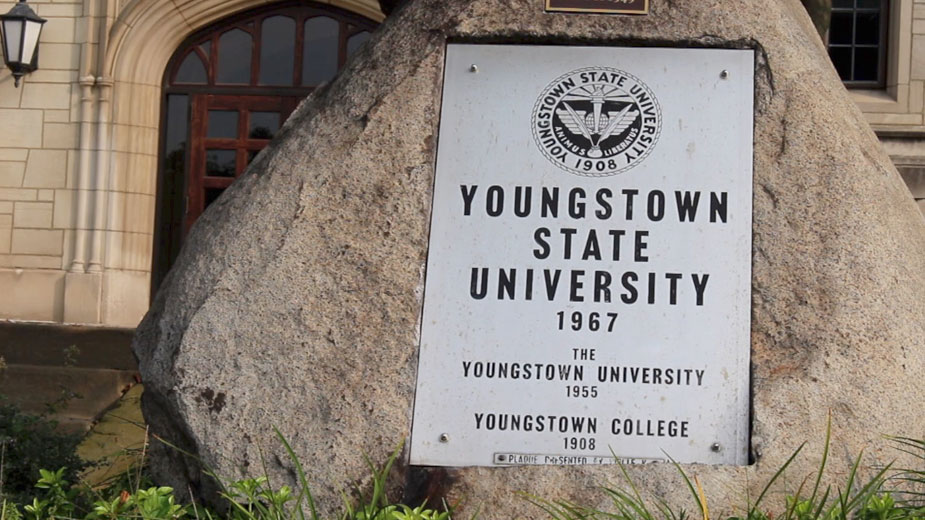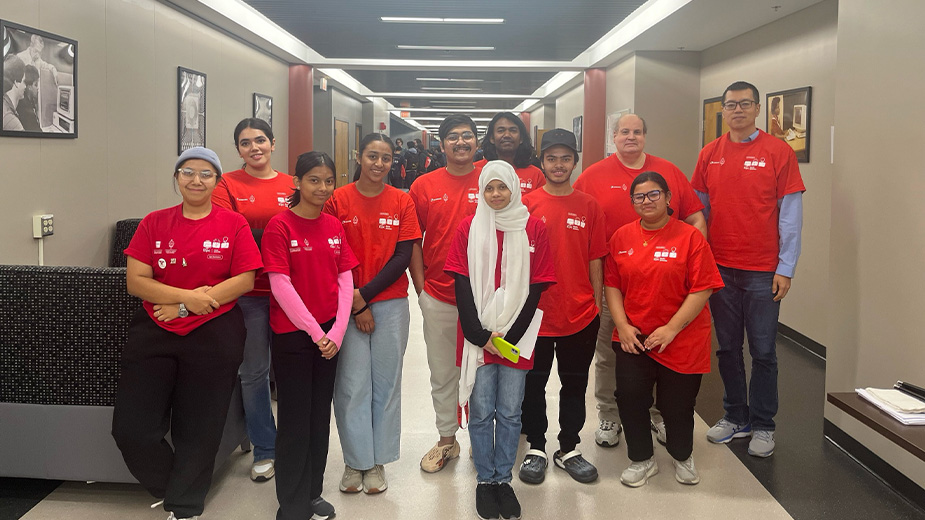Faculty Strike Closer at YSU, Classified Workers Reach Tentative Contract
YOUNGSTOWN, Ohio – As Youngstown State University and its faculty union met for their second negotiation session, the two sides are not much closer to reaching an agreement.
The two sides met again Friday for a “another largely unproductive” session, said the YSU chapter of the Ohio Education Association, though it extended past the original planned closing time of 5 p.m.
The lack of an agreement puts the union a step closer to going on strike; membership will vote this weekend, with a final result known Saturday evening. If the strike is approved, it will begin Monday.
Meanwhile, YSU announced late Friday that it has reached a tentative contract agreement with its classified staff union. The agreement with the YSU Association for Classified Employees will now go before the ACE membership and the YSU Board of Trustees for formal ratification.
“We thank the leaders of the ACE union for their respectful and reasonable efforts on behalf of our students and the entire university community,” YSU President Jim Tressel said. “From the very beginning of this challenging Covid-19 pandemic, the leadership and membership of this group have worked extremely hard in a cooperative way to help the university and our students.”
The pact calls for essentially the same economic terms presented and rejected Friday by the faculty union, the university said in announcing the deal with classified workers.
In a statement, Mark Vopat, YSU-OEA spokesman, said, “YSU’s administration insists on bringing further uncertainty to campus by refusing to acknowledge the results of the impartial fact-finding process that they themselves insisted upon. In her report, Judge Widgeon acknowledged that the parties were unlikely to agree to all of her recommendations, but articulated her hope that they would be a starting point for continued negotiations. The faculty made its voice clear in last week’s nearly unanimous vote that our position should be consistent with the fact finder’s: the report should be the baseline for further negotiations.”
YSU Provost Brien Smith called on the faculty union to withdraw its strike notice and continue negotiations. No meetings are scheduled.
“For the sake of our students and the community, who have persevered under difficult and unprecedented circumstances this year, we need to come to a resolution that is within the university’s financial means and without a work stoppage,” Smith said in a statement. “We appeal to our faculty colleagues to consider the facts surrounding the university’s finances and the significant impact that a strike would have on our students. We have all worked so hard to successfully maneuver through this global pandemic in service of our students. Let’s not stumble now.”
YSU has scheduled its Fall Break for students to be held Monday and Tuesday, so classes will not be disrupted those days. If the strike continues Wednesday, the university plans on offering classes, Smith continued, with details to be released later.
The university’s position remains that its financial situation can’t accommodate the 6% raise over three years – a 2% increase each year – requested by the union, reporting a 4.4% drop in enrollment, a decline in revenue of $3.7 million this fiscal year and the pay cuts and lay offs that have already affected non-faculty employees.
“Higher education is in a critical time of transition and the world is in a crucial time of unprecedented challenges. The financial realities at YSU, and at universities across the state and nation, are difficult and will require the sacrifice of all,” Smith said.
Citing a “faculty expert analysis,” the union counters that the university has a $7.3 million surplus rather than a $2 million deficit.
“It is possible that YSU’s reported deficit is related to its $2.8 million error in the calculation of fringe benefits in the current operating budget,” the YSU-OEA says.
YSU-OEA outlined its “must haves” in the new contract: “the right of faculty to have say in their departments, programs and classes; protections for its most vulnerable faculty; maintenance of the same protections for faculty scholarship that exist at virtually all institutions of higher learning and; at a minimum, cost of living salary adjustments across the next three years and maintenance of the current health benefits plan.”
“The administration continues to insist that the way forward for both parties must include an erosion of faculty’s ability to meaningfully participate in the affairs of the university and the future of our students, and to continually chip away at the rights and protections of some of our most vulnerable faculty members,” Vopat said.
Copyright 2024 The Business Journal, Youngstown, Ohio.



